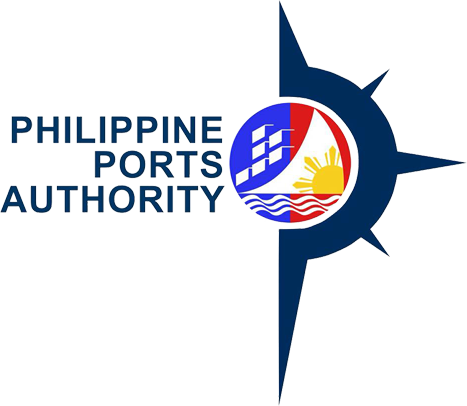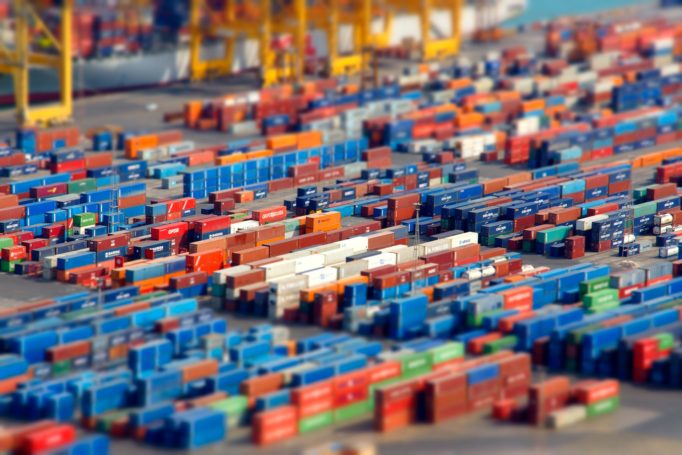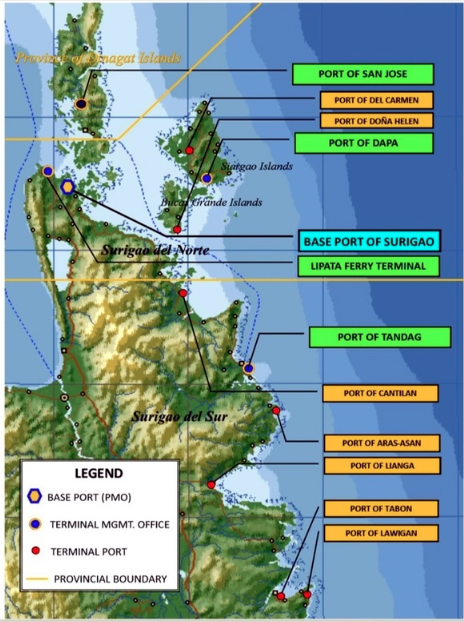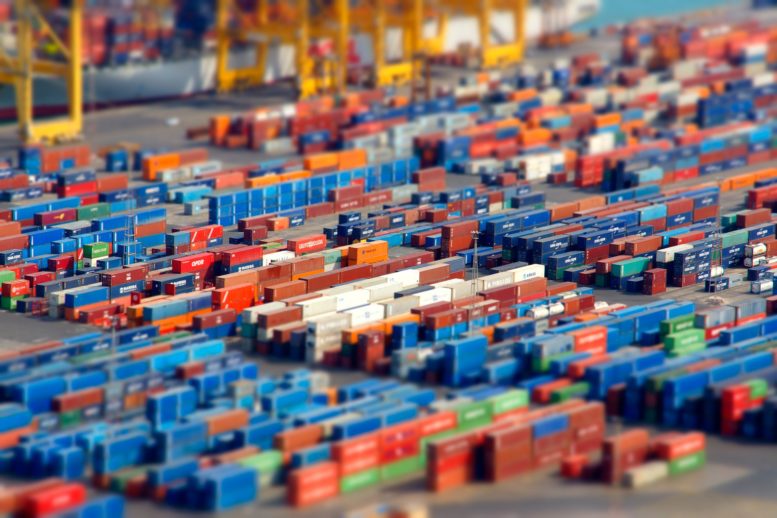Marking its 44th anniversary on this day, the Philippine Ports Authority (PPA) has been making big investments in terms of port infrastructure in its bid to achieve its vision by 2020.
It is also in line with the current thrust of the Duterte administration to realize the golden age of infrastructure and be at par with our international partners. Incidentally, the move is also parallel to one of the major programs of the International Maritime Organization (IMO) of building better ports for the future. PPA General Manager Jay Daniel R. Santiago said the focus of the infrastructure projects include full containerization of Philippine ports and the provision of larger backup areas; safe and convenient Passenger Terminal Buildings (PTBs); upgrade and construction of cruise terminals in key areas nationwide. “The President’s and Sec. Arthur P. Tugade’s marching orders are to heavily invest on port infrastructure in order to provide port services of global standards by 2020,” Santiago said. “Since the start of the year, almost all of our resources have been directed to our port projects. We have already required all our contractors and suppliers to increase their productivity in order to finish the projects, particularly the locally-funded projects (LFPs), on time if not ahead of time,” Santiago stressed.
“This year, we have earmarked close to P6 billion to carry out our LFPs, which run to around 109 port projects, wherein 46 are in Luzon, 23 in the Visayas, and 40 projects in Mindanao,” Santiago said. For the Luzon port projects, a total of 9 have already been completed while 18 are ongoing and 19 projects are under procurement. In the Visayas, 6 have already been completed, 10 are ongoing while 5 projects are under procurement. Mindanao registered the biggest number of completed projects with 21 while 49 projects are ongoing. The region also has 35 projects under procurement. Currently, PPA is also carrying out several infrastructure projects in key areas to support the booming cruise industry aimed at developing international hubs for cruise liners in Surigao, Ilocos Norte, Bohol, Boracay, Metro Manila, and Palawan. These make up the nation’s major nautical cruise arteries. It has also lined up port programs for the development of these cruise terminals.
Financial Performance. As a result of its aggressive infrastructure push, the PPA registered lower net income in the first five months of the year as its expenses soared, as expected, to finance the said projects. PPA’s total revenues for the first five months of 2018 went up by 13% to P6.84 billion from P6.04 billion a year earlier. Expenses increased 44% to P3.01 billion from P2.08 billion in 2017 primarily due to the huge infra spending on repair and maintenance and Land improvements that increased more than 139%, resulting in a net income of P3.83 billion or some 3.24% lower than the P3.96 billion posted in the same period in 2017. Nonetheless, despite the huge financial requirements, the PPA remains very liquid and financially stable with a net worth of P187.57 billion.
Operational Highlights. Philippine cargo throughput for the first 5 months of the year slightly increased by 0.44% due to the high activity in domestic consumption and positive business climate nationwide. Total throughput reached 98.89 million metric tons (mmt) for the period compared to the 2017 figure of 98.46 mmt wherein domestic cargo volume went up almost 4% to 42.36 mmt. Foreign cargo traffic decreased by 1.85% to 56.524 mmt wherein imported products inched up by 4% to 37.99 mmt while export volume declined by 12.12% to 18.52 mmt. In terms of container traffic, volume soared by 8.6% to 3.02 million twenty-foot equivalent units (TEUs) as against the 2017 same period volume of 2.78 million TEUs. Domestic boxes registered an increase of 9.4% to 1.23 million TEUs compared to the 1.12 million TEUs handled last year while foreign boxes registered an increase of 8% to 1.79 million TEUs from 1.65 million TEUs in 2017. Passenger volume continued to expand as of end May as it increased by 9.3% to 36.76 million versus the 33.63 million handled in the same period last year due to the increase in reliance of the sea-traveling public on Ro-Ro vessels, fastcrafts, and motorized bancas for inter-island travel particularly in the ports of Bohol, Masbate, Mindoro, Negros Oriental and Siquijor and Negros Occidental-Bacolod-Banago area. The soaring international cruise tourism industry has also positively contributed to the overall performance of the country’s passage industry as it soared by more than 184.76% from a mere 43,820 international cruise passengers last year to 124,779 passengers this year. The concentration of cruise ship passengers is at the ports of Manila, Panay/Guimaras, Batangas, and Palawan. There is no sign of port congestion in any of the major gateway ports of the Philippines particularly Manila ports as productivity remains stable with a combined average productivity of 23 moves an hour. In terms of yard utilization, the average is at 60% while berth occupancy rate at the 3 ports is at 59%.
Dividends. PPA posted a record high in 2017 in terms of dividends remitted to the national coffers after remitting more than P3 billion, its highest contribution to the National coffers since 1986. The state-owned agency’s dividend for 2017 also eclipsed by at least 30% all the dividends it remitted to the government at least in the last decade, including its erstwhile record of P2.158 billion remitted in 2015. PPA is mandated to remit 50% of its annual net income to the National Government after it was granted fiscal autonomy during the term of President Corazon C. Aquino. In the last couple of years, the PPA is a regular member of the ‘Billionaires Club’ of Government Owned and Controlled Corporations contributing billions of pesos in dividends. With this all-time high dividend by PPA, it is expected to maintain its inclusion in the elite list of GOCCs.
Cruise Tourism. Philippine cruise ship arrivals posted unprecedented figures capped by the simultaneous docking of cruise ships at the Manila South Harbor recently. Manila South Harbor, managed and operated by Asian Terminals, Inc., registered the biggest number of cruise ships docked at the ports with SuperStar Virgo of Star Cruises, Costa Atlantica of Costa Cruises, Amsterdam of Holland America Lines, and Silver Shadow of Silversea Cruises. The continuous hike in cruise ship arrivals is a testament to the initiatives put into place by different government agencies like the PPA, and Departments of Tourism and Transportation. PPA has been injecting so much effort to improve the cruise facilities of our ports particularly Puerto Princesa in Palawan, South Harbor, North Harbor in Manila, Bohol in the Visayas, and Currimao in Northern Luzon. The more than 1000% increase in the number of cruise tourism passengers suggests we are slowly reaping the benefits of those initiatives.
New PPA Logo.

The Philippine Ports Authority (PPA) also unveiled its new logo in its bid to transform the agency into a more transparent, reliable and model corporate organization. The new PPA logo got the nod of the Office of the President through the National Historical Commission of the Philippines in December 2017. The new logo embodies the vision of the PPA, which is to provide port services of global standards encompassing the 3 major islands of the country, and underpins the commitment of the PPA to maintain the highest standards with vessel operators, cargo owners, port stakeholders, safety, environmental protection, etc. The sharp element of the logo is the North Star, a symbol of guidance, direction, stability and leadership. It denotes the PPA’s firm stand in the achievement of its Vision and Mission. This element also stands for the letter “P” in the PPA/Philippine Ports Authority while creating the image of a bollard. The sun symbolizes economic improvement and progress of the country; the 3 waves stand for the waters of the 3 island groups in the country – Luzon, Visayas and Mindanao. The government’s main thrust, through the PPA, is to ensure interconnectivity between the Philippine islands through port development. The blue and red circle within the star symbolizes the globe, which depicts PPA’s Vision “to have provided port services of global standards. The cargoes represent one of the basic functions of the PPA which is port operations.”
FOI Compliance. The Philippine Ports Authority (PPA) is fully compliant with the requirements of Freedom of Information (FOI) reinforcing its earlier commitment to be fully transparent to the public. The PPA has received recognition from the Presidential Communications Operations Office (PCOO), one of only three Government Owned and Controlled Corporations recognized by the PCOO along with the Authority of the Freeport Area of Bataan (AFAB) and the National Housing Authority (NHA). In order to be fully responsive to all requests, PPA has its FOI internal database monitoring system and has included in the preparation of its programs the following initiatives to provide a more efficient FOI requests’ management: introduction of enhancements to its internal FOI monitoring system compliant with the required FOI registry format; provision of an FOI kiosk to cater to walk-in requesting parties; and PPA-wide orientation seminar to fully inform the employees and document custodians on the Freedom of Information and the PPA FOI Agency Manual.
Strong international performance. The Port of Manila leaped 4 notches higher finishing at 32nd spot in the list of the 2016 top 100 container ports worldwide and jumped one step higher to 22 in the list of Asian ports included in the top 100 container ports, according to the list released by the Lloyd’s List in 2017. Manila was able to post very positive performance in 2016 due to the Philippines’ booming national economy that increased 6.8% from 5.9% a year earlier. It also added that the higher volume handled at the Manila Port’s international terminals, composed of the Manila International Container Terminal (MICT) and the Manila South Harbor, was due to the Terminal Appointment Booking System put into place sometime in 2015. The country bested other notable international ports in terms of container volume like the ports of Felixtowe (36), Seattle/Tacoma (41), Vancouver (52), Kobe (55), Incheon (58), Nagoya (59), Melbourne (62), London (66), among others. In Asia, Manila ports outperformed the ports of Jawaharlal Nehru in India, Tanjung Perak (Surabaya) in Indonesia, Kobe, Yokohama and Nagoya in Japan as well as Incheon in South Korea. In the 2016 edition, 53 Asian ports made the list while 47 Asian ports were included in the 2015 list.
Anniversary 2018. This year’s anniversary was celebrated in an austere manner to infuse the fund into port projects and corporate social responsibility programs instead. The theme: “44 years of building better ports for a better future,” was highlighted in a Thanksgiving Mass on 11 July held at the PPA Corporate Office, followed by a recognition of several PPA employees for exemplary performance in the past year. Winners from the different sports events in the first ever PPA National Sportsfest were cited. For entertainment, the General Manager, Assistant General Manager for Operations, Assistant General Manager for Finance and Administration, and General Manager for Engineering did a number during the celebration.
“Celebrating the anniversary is not about bonuses and raffle items. It is about our service to the public, which will guarantee the continued relevant existence of the agency,” Santiago said.


